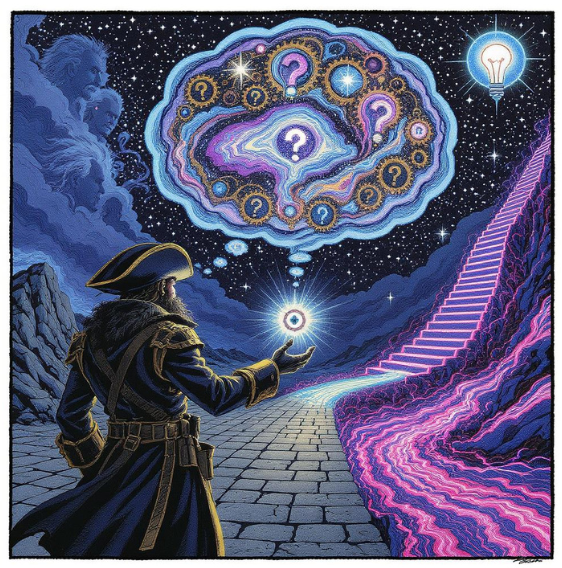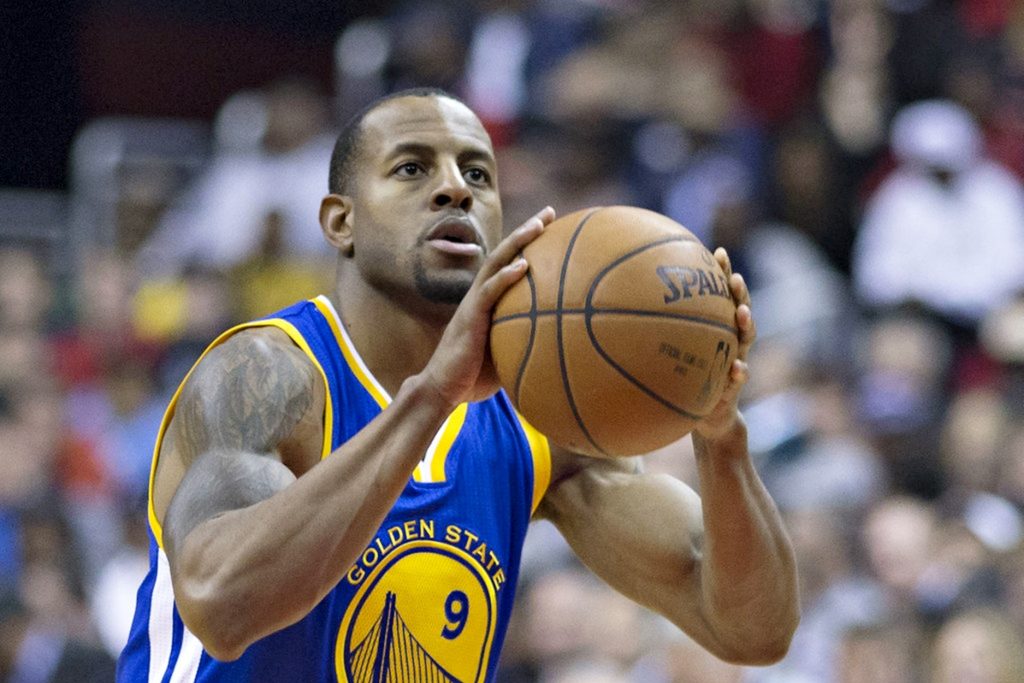Category Creation for Startup Entrepreneurs: How to stop competing and start creating

Let’s start with a painful truth: most startups never actually start something new.
They enter an existing market.
They build a slightly better product.
And then they drown in a sea of sameness.
That’s not entrepreneurship.
That’s incrementalism with a hoodie.
If you want to build something legendary—not just “fundable”—you have to stop playing the game others designed.
You have to create your own category.
1. The Startup Lie: “Build a Better Product and You’ll Win”
This is the oldest lie in Silicon Valley.
The myth that innovation is all about the product.
But here’s the real problem: better doesn’t win. Different does.
History is littered with companies that had better tech and still lost—because they tried to compete inside someone else’s frame. BlackBerry had the better keyboard. Apple built a better category (the smartphone). MySpace had more users. Facebook built a better category narrative (real identity). Zoom didn’t “out-feature” Webex. It reframed what “simple, reliable video” meant in a hybrid world.
Startups die not because their product sucks. They die because they fail to tell the world what game they’re actually playing.
2. What Category Creation Really Means
Category creation is not marketing spin.
It’s the business discipline of designing the space you own.
It’s what happens when you do three things with legendary precision:
- Frame the problem in a way no one else has.
(You teach the world to see what’s been invisible.) - Name the solution in language people can’t un-hear.
(You coin the phrase that organizes belief.) - Claim the position before anyone else knows it exists.
(You take the high ground while everyone else fights in the valley.)
That’s the magic triangle of category design:
Problem → Solution → POV.
And when you get those three aligned?
You don’t compete for demand. You create it.
3. Why Founders Fail at Category Creation
Because they’re trained to think like engineers, not evangelists.
Founders obsess over what they’re building.
Category designers obsess over what people believe.
The product says, “Here’s what we do.”
The category says, “Here’s why it matters.”
And belief beats features every time.
If your startup is struggling to get traction, the issue isn’t distribution—it’s definition. You haven’t defined the problem clearly enough for the world to care.
You’re trying to win a market instead of making one.
4. Category Design Is a Strategic Weapon
Think of it like this:
- Marketing tells the story.
- Sales converts the believer.
- Category design decides what the story means.
When you define the narrative, you define the economics.
That’s why Salesforce didn’t sell “CRM software.”
They named a new category—“cloud computing.”
That’s why HubSpot didn’t sell “marketing automation.”
They created “inbound marketing.”
That’s why Airbnb didn’t sell “cheap lodging.”
They reframed travel around belonging.
Each of those companies designed a new mental shelf in the minds of their customers. And whoever owns the shelf owns the category.
5. The Founder’s Checklist for Category Creation
If you want to stop blending in and start leading, start here:
- Name the Enemy.
Every category has a villain. What are you fighting against?
(Confusion? Waste? Bureaucracy? Invisibility?) - Design the Language.
What words will you own? If you don’t name it, someone else will—and you’ll lose the conversation. - Declare Your POV.
Don’t describe what you do. Tell the world what you believe.
Great categories start as acts of rebellion. - Concentrate Your Strike.
Don’t spread yourself thin across every marketing channel.
Create a Lightning Strike—a concentrated burst of attention that tips word of mouth in your favor. - Turn Customers Into Superconsumers.
Your early adopters are not “users.” They’re your missionaries.
Make them part of your story. Let them spread your belief faster than your ad budget ever could.
6. Category Creation Is a Leadership Act
Most startups are built to chase.
Category creators are built to lead.
Leadership means you go first.
You take the arrows. You carry the flag.
It’s risky. It’s lonely. It’s uncomfortable.
But it’s also where the leverage lives.
Because when you create the frame, everything inside it bends toward you: Pricing power. Press coverage. Investor interest. Talent magnetism.
The moment you define what matters—others fall into formation around it.
7. How to Know If You’re Building a Category (Not Just a Company)
Ask yourself three questions:
- Do people repeat your language when they describe their world?
If they’re quoting you, you’re shaping belief. - Do your competitors look outdated—even if their product works?
If yes, your POV has changed what “good” means. - Do your customers evangelize you without being asked?
If yes, your narrative is doing the heavy lifting.
That’s category momentum.
It’s the compounding interest of meaning.
8. The Future Belongs to Category Creators
The world doesn’t need more startups.
It needs more founders brave enough to reframe it.
AI is making “better” cheaper.
But “different” will always be priceless.
The founder who builds a new category doesn’t just win market share—they win mindshare. They stop chasing demand and start making it.
So if you’re a startup founder reading this, here’s your call to arms:
Stop tweaking your pitch deck.
Start writing your manifesto.
Stop marketing your product.
Start evangelizing your POV.
The goal isn’t to get people to buy.
The goal is to get people to believe.
Because once they believe—
The buying takes care of itself.
Final Thoughts:
The most dangerous place for a startup isn’t irrelevance—it’s invisibility.
Category creation is how you become seen, heard, and followed.
So go make your dent.
Frame it. Name it. Claim it.
Then light the damn fuse.

Learn more about category creation.
Subscribe to Category Pirates.
NBA Star Andre Iguodala: Success Is All About Life Design

By Christopher Lochhead
When you ask the average professional athlete what got them to where they are, most will credit hard work, determination and discipline. Three-time NBA champion Andre Iguodala’s answer? Life design.
The 2012 NBA All-Star and current Golden State Warriors swingman says that, with the right life design, “you’ll learn what it takes to be an NBA world champion. Your own ideas of dedication, sacrifice, commitment, and performance will be expanded.”
Don’t forget to have some fun and laugh a little along the way though, he adds.
I was stoked to have Iguodala on my podcast to talk about life design—how you can build the life you want through forethought and willpower. The goal here is to leave you with valuable actionable advice that will immediately help you design a life built for success, whether that looks like a big, shiny NBA Championship ring on your finger or a corner desk with a view in your company’s C-suite.
Build that culture.
Sure, the Golden State Warriors roster is chock full of talent highlighted by big names like Steph Curry, Klay Thompson, Draymond Green and Kevin Durant. But it’s the culture they’ve built to support their superstars that makes Golden State a true dynasty, says Andre Iguodala.
Simply put, talent alone isn’t enough.
Mark Jackson, the head coach of the Warriors for three seasons between 2011 and 2014, understood that. As a former player himself, he understood the ups and downs of playing in the NBA. Jackson wanted his players to play the game how they wanted to play it, to enjoy the ride. While his three seasons fell short of expectations, Iguodola credits Jackson for laying the foundation for what became a dominant team in the coming years.
When building a strong team culture, the best coaches and managers consider the personalities behind the players. They really get to know each name on the roster and envision how they will function both on the court and in the locker room.
Of course, two elite players who aren’t on the same page don’t have that chemistry. They will only bring each other and your culture down. This is true for both sports teams and in the workplace.
Picture a team of rowers in perfect synchronized unison. When your team culture is healthy, that’s how your organization will function—efficiently, seamlessly. But when something throws off that synchronization and disrupts healthy team culture, it doesn’t matter how much talent is on that boat or out on the court. Across all sports teams and companies, big egos and disputes over dollars can throw an entire organization out of sync.
For leaders of a team of any sort—whether it be the Golden State Warriors or a financial firm—building culture is mostly about getting everybody on the same page. You’ve got to create a support system that will help each individual become their best selves, achieve peak performance. It’s about taking a good, hard look at each piece of your organization and making sure the right ones are in the right places.
The three-point shot.
For every time Steph Curry sinks a three-pointer that draws a collective gasp from the crowd because it was so darn beautiful, hours of gritty, unsexy hard work behind the scenes made it happen.
Fans see Curry or Kevin Durant draining threes all day and call it talent. But it’s about so much more than that. It’s about the little things those guys do day in and day out to keep their minds and bodies right so they can perform that way. The guys who stay on top are able to because they put in the hard work behind closed doors—every damn day.
When someone tells Iguodala that they wish they could trade places with him, he says, “You wouldn’t stand a chance. You see me on TV for five minutes. The other 23 hours and 55 minutes, I’m working my tail off. This is not a game. It’s not a joke.”
How do you think about failure?
For Andre Iguodala, failure is a learning experience. Something that he truly believes he was meant to go through.
His sophomore year of college at The University of Arizona, Iguodala was in a dark place. Suffering from sleep deprivation, he wasn’t playing up to his own or his coach’s expectations. His confidence wavered. A career in the NBA seemed like a long shot. In terms of confidence, Iguodala considers himself “a late bloomer.”
Even when the Philadelphia 76ers called his name ninth overall at the 2004 NBA draft, 20-year-old Andre Iguodala wasn’t sure he was actually an NBA-calibre basketball player. But he used that self-doubt as the drive to get a little better each and every day.
What does it feel like to win a championship?
Up by a handful of points with two minutes to play in the 2015 NBA Championships, Andre Iguodala distinctly remembers Cleveland Cavaliers forward J.R. Smith—unstoppably sinking constant threes—striking fear in his bench. Of course, Golden State weathered the assault and ultimately came out on top. But even still, it didn’t feel real at first for Iguodala.
When the final buzzer of the 2015 season sounded, time froze. Iguodala didn’t know what was about to happen. He didn’t know what to do next. So he just embraced the moment.
As for what he’s taken away from having now won three NBA championships, Iguodala says that these are the lessons that stick out when he reflects back on his paths to glory:
- There are so many variables out of our control—don’t worry about them. All you can really do is train and prepare to be the best version of yourself.
- After you win your second (and third) championship, you get a little jaded.
- Understand that your opponent is on high 82 times a year and will play amazing because they are playing you—so have a little fun while staying in the moment.
- Reflecting back on all the struggles—“Man, remember we got over that hurdle? Remember this guy got hurt?”—and considering the culmination of your efforts will greatly broaden your perspective.
- The journey is the reward.
Designing the future.
Iguodala, 35, is already preparing for life after the NBA.
He looks forward to taking his talents to the business world—more specifically, investing in the exciting nearby world of Silicon Valley tech startups. Ever since he was a little kid, Andre Iguodala has been fascinated by math and numbers. Couple that with an intense natural curiosity and eagerness to learn, he is poised to become a successful venture capitalist.
There’s a classic quote—credited to both Mark Twain and Andrew Carnegie—that goes, “Put all your eggs in one basket, and then watch that basket.” This is a great way to think about taking advantage of the opportunities you have.
To that end, Iguodala says, “The window of opportunity—that window is very short. So, you just try to maximize that window with the understanding that you’re going to be alive until you’re 85 or 90 years old, and it’s not just about you. It’s about leaving a legacy behind for the next generation.”
Note: This post first appeared on Medium.
________________________________________
Corporations Are Dead. Top Tech Investor Mike Maples, Jr. Tells Us Why

By Christopher Lochhead
In the 1800s, there were exactly zero corporations with more than 100 employees in the U.S.
But then the Industrial Revolution happened.
As we quickly embraced the power of technological innovations like the steam engine and railroads, our overall standard of living improved immensely. John D. Rockefeller, Cornelius Vanderbilt, and other titans of innovation built fortunes that were previously unimaginable, all while forever altering the face of the ‘modern’ American company.
The pace of change then accelerated with the emergence of the stock market, a network to facilitate financial transactions between people and companies.
On my podcast, Legends & Losers, I just spoke about the power of networks with VC extraordinaire and Silicon Valley giant, Mike Maples, Jr. Mike was a founder and exec at Tivoli Systems and Motive, startups acquired by IBM and Alcatel-Lucent, respectively.
We’ve known and done business with each other for years. Now he’s a partner at Floodgate where he’s invested in Twitter, Weebly, and Twitch.
According to Mike, the rise of networks will bring about a similar paradigm shift — akin to what we saw in the 19th century.
Rather than put our money into corporations, we should invest in networks because they bring democracy, an abundance of wealth, and an improvement in everyone’s standard of living.
Here’s why networks will bring us to a better future for investors… and all humankind:
Networks are collaborative.
Corporations have a clearly-defined governance structure:
employees create products or services under the direction of the CEO, who reports to the board of directors and the shareholders.
But in a network, the people who create value don’t necessarily work for a company.
With user-generated content, anyone who chooses to participate in your network is essentially co-creating the product itself.
Take social networks like Facebook and Twitter. According to Mike, these companies are valuable because everyone uploads their photos and collaborates with one other to create content.
In other words, the strength and value of the platform come from the people in the network, not the company.
And if the best users — those who consistently post the highest quality content — leave, then the network loses its power.
Networks are democratic.
Corporations are like oligarchies: a small group of people make decisions and keep the majority of the returns. Unless you’re an executive or on the board of directors, the only way to participate in a corporation is to buy its stock.
But with networks, almost anyone can participate. You don’t need to have investing knowledge or access to capital.
Networks bring us closer to direct democracy because they give us the freedom to decide what we read, who we listen to, who we communicate with. And like a democracy, the best networks (and network-centric businesses) start with a constitution: a set of guidelines for all users that explains how the community functions and how people should treat each other.
One reason Mike is so excited about cryptocurrencies and blockchain is that they represent a shift toward decentralized, democratized data.
This is a scary idea for some, but Mike has a solution. Because all communities have bad actors — the key to thwarting them is to provide no profitable upside for gaming the system. To remove the incentive.
Think about it like this: the brilliance of Bitcoin is that it’s a community-driven, self-governance model that functions even if every user is a bad actor.
Trust isn’t built into the model. Rather, trust is an emergent result of the way the model’s built. That’s super powerful.
And a trustless society provides everyone with a better community and way of life.
Networks break up monopolies.
In the past, “the news” consisted of three broadcast networks on TV and a few national newspapers. These outlets held a monopoly on distribution.
But today, you can choose between hundreds of thousands of news websites, TV channels, podcasts, social media pages… the list goes on.
These alternate media companies can build a giant audience and challenge the dominance of the historical behemoths. Legacy radio, TV stations, and newspapers are dying as alternate media thrives.
And with social media, all of us can become our own media company, broadcasting our views and sharing our content with whoever wants to see it.
That’s the beauty of networks: the pirate (user) can become the monarch (the media company).
This is the brave new future we’re barreling towards. The sooner we embrace networks as forces of good, the more we’ll benefit.
[This article first appeared on The Mission Podcast]
________________________________________
Christopher Lochhead is the host of the top 30 Business Podcast, Legends & Losers and coauthor with Heather Clancy of #1 Amazon Bestseller “Niche Down: How to become legendary by being different.”
Heather Clancy is an award-winning journalist, coauthor with Christopher Lochhead of “Niche Down: How to become legendary by being different.” She is also editorial director for GreenBiz.com.

